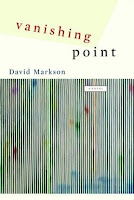 Riches, prestige, everything can be lost. But the happiness in your own heart can only be dimmed; it will always be there, as long as you live, to make you happy again.
Riches, prestige, everything can be lost. But the happiness in your own heart can only be dimmed; it will always be there, as long as you live, to make you happy again. Whenever you're feeling lonely or sad, try going out to the loft on a beautiful day and looking outside. Not at the houses and rooftops, but at the sky. As long as you can look fearlessly at the sky, you'll know that you're pure within and will find happiness once more.
After thirty years, I have re-read this book following my visit to the Anne Frank house in Amsterdam. The diary has changed since I read it as a teen. Parts of the diary were edited out by her father when they referenced difficulties between Anne and her mother or involved sexuality. Now you can read a completely unedited version. The book was amazing the second time through, especially having walked behind the bookcase and standing in her room with the black-out curtains.
Anne was an excellant writer and talked about pursuing that as a career. I was very impressed with her maturity and the growth in character she developed over the years hidden in the annex. Her study habits were intense and perhaps helped contribute to her optimistic outlook under such difficult circumstances. I was surprised that she expressed so little anger or hatred toward the Nazis. The book is an incredible testiment to the human spirit.


